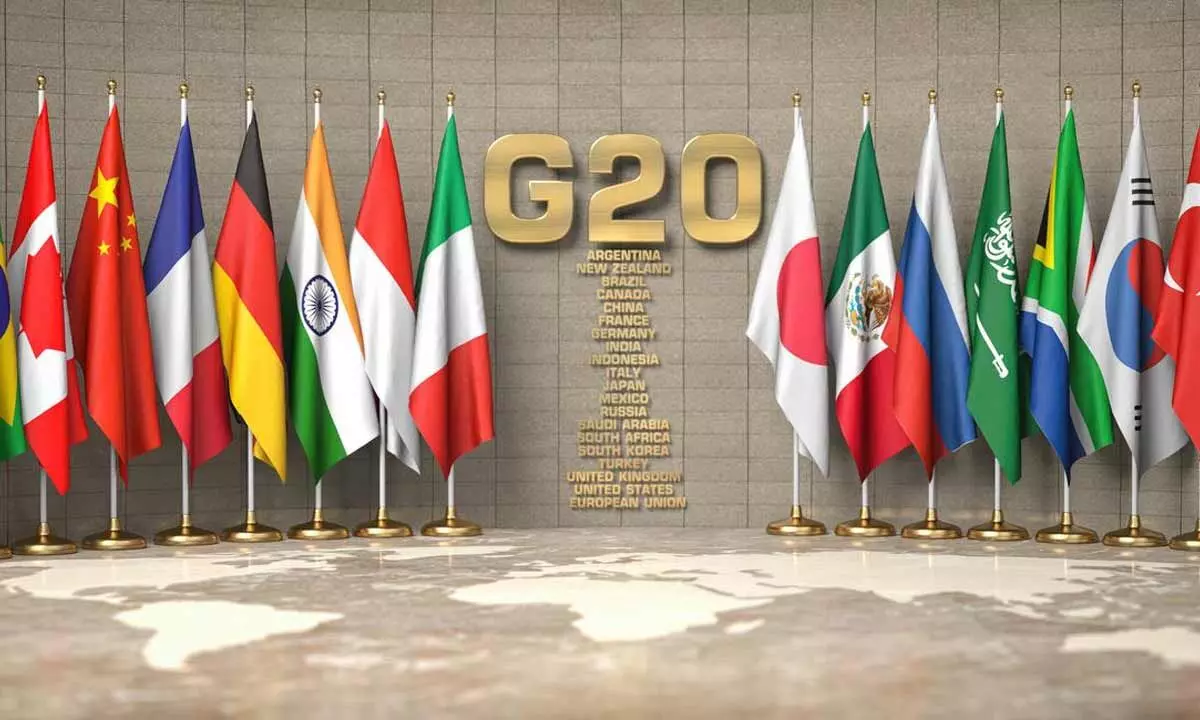Hopes on India to revive Arctic research

Top officials review G-20 arrangements in Kashmir
The US-led NATO-Russia conflict in Ukraine for over a year now has stalled India’s climate research work significantly and also affected the world’s data collection on the subject due to the curbs imposed on the Russian-aided research
The US-led NATO-Russia conflict in Ukraine for over a year now has stalled India's climate research work significantly and also affected the world's data collection on the subject due to the curbs imposed on the Russian-aided research. The suspension of scientific exchanges in the Arctic, as a protest against the Ukraine situation, is likely to severely impede global climate change mitigation efforts, too. Researchers like Capt Anurag Bisen at the Manohar Parrikar Institute for Defence Studies and Analyses have rightly highlighted the need for a multilateral mechanism having relevance, stakes, and heft, to effect a change in the status quo. Here is where India has a key role to play as it has assumed the presidency of the G20.
The idea that the world is one family—Vasudhaiva Kutumbakam or 'One Earth•One Family•One Future' - is resonant with the interconnectedness of the Arctic with the rest of the world. India, using the Sherpa Track, can use its presidency to expeditiously revive scientific exchanges in the Arctic, the researchers say. Apart from cooperation between the US Coast Guard and the Russian Border Guard on maritime safety on either side of the Bering Strait, and enforcement of treaty-based commitments such as the ban on fishing in the Central Arctic Ocean and aeronautical and maritime search and rescue in the Arctic, there is a complete lack of engagement between Russia and the West in the Arctic.
Much of the research and data sharing between scientists has been put on hold due to restrictions imposed by funding agencies in Europe and the US. Several field experiments originally planned for the region have shifted to the North American or European Arctic. It is now learnt that the curbs have led to cutting off data on permafrost research from Russia, a key source of information for climate models that help researchers to predict future warming. The suspension is despite the existence (since 2018) of a legally binding Agreement on Enhancing International Arctic Scientific Cooperation between the eight Arctic Council members, whose sole purpose is to enhance cooperation in Scientific Activities towards the development of scientific knowledge about the Arctic.
"The Ukraine conflict has resulted in the cessation of funding for dozens of international scientists at Russia's Science Station in Siberia, studying climate change in the Arctic environment since 2000. These scientists maintain instruments that measure how quickly climate change is thawing the Arctic permafrost and how much methane is being released," Captain Bisen says. Also, since two-thirds of the permafrost region is in Russia, cessation of engagement will cut off our understanding of global changes to permafrost.
Leading researchers specialising on climate change and greenhouse gases having vast experience in the Arctic as well as the Antarctic have noted that scientists' access to field sites has been cut, thereby preventing 'ground truthing' of data, inability of maintaining data quality (protocols) and loss of data sharing, all of which are leading to an 'environmental emergency.' Countries like India cannot engage directly in the Arctic and need to depend on a permanent participant. The G20 presidency is certainly an opportunity for India in restoring the research, but it is also quite challenging.

